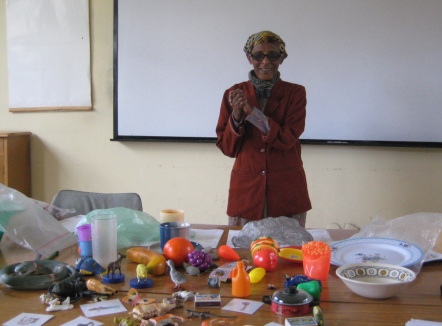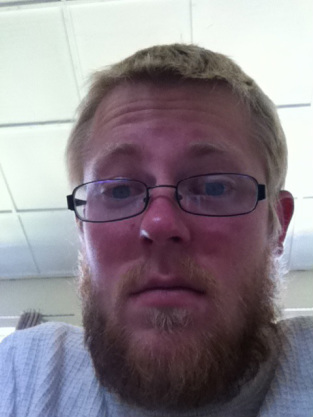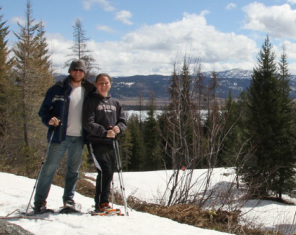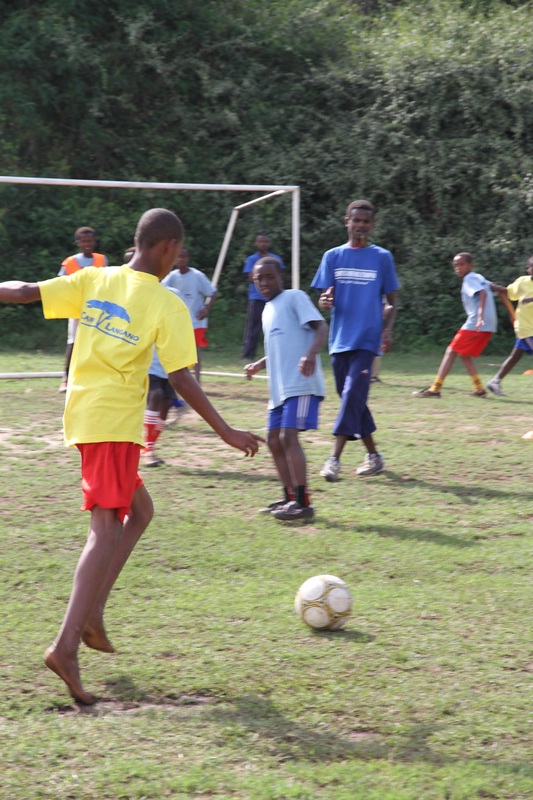After seeing a birth, I now have a new appreciation for the resilience and strength babies possess. I wish I could interview a baby right before it makes the plunge into the real world, would they be scared, excited, or apprehensive? Would they have any idea of what awaits them on the other side of the birth canal? I suppose birth is our first experience with culture shock – new foods, sounds, smells and sights. In the womb life was safe. You had no fears or concerns about people endlessly kissing your cheeks, poking your eyes, or talking to you in a ridiculous baby voice. No wonder babies can scream/cry for hours on end - culture shock can be unbearable at times.
At times I have felt like a baby struggling to find my way in a strange new world. A world where weird smells waft through the air, people are unashamed to stare at me, and nearly every conversation is in a language I don’t understand and the words I can understand like “Ferenji” or “Give me ze money” only point out the fact that I am from a different world every time I step on the street. I live in a society where I rarely understand the social rules or structure, where productivity is redefined, and where simple tasks take an extraordinary amount of time. As I continue to wrestle through infancy, I am constantly reminded of the Ethiopian proverb, “Cus bu cus incolaloo bu igor yeheed” or translated to “Step by step the egg will start to walk.”
Last week we started studying Amharic at language school in Addis Ababa. We couldn’t have been more than 10 minutes into the first day when my Amharic instructor confirmed my musings by declaring every student in the room a baby! At one point he looked me in the eye, grinned and exclaimed, “You are a baby!” While the news only confirmed my suspicions, I found myself being both humbled and comforted.
At times I have felt like a baby struggling to find my way in a strange new world. A world where weird smells waft through the air, people are unashamed to stare at me, and nearly every conversation is in a language I don’t understand and the words I can understand like “Ferenji” or “Give me ze money” only point out the fact that I am from a different world every time I step on the street. I live in a society where I rarely understand the social rules or structure, where productivity is redefined, and where simple tasks take an extraordinary amount of time. As I continue to wrestle through infancy, I am constantly reminded of the Ethiopian proverb, “Cus bu cus incolaloo bu igor yeheed” or translated to “Step by step the egg will start to walk.”
Last week we started studying Amharic at language school in Addis Ababa. We couldn’t have been more than 10 minutes into the first day when my Amharic instructor confirmed my musings by declaring every student in the room a baby! At one point he looked me in the eye, grinned and exclaimed, “You are a baby!” While the news only confirmed my suspicions, I found myself being both humbled and comforted.
You see, our language school teaches its students through the Growing Participator Approach as developed by Greg Thomson. This language learning approach is modelled after the way a child would learn their first or native language. Babies don't start out by talking or discussing grammatical sentence structures, they start out by listening to others speak. Then after a period of time, the child is able to start 'babbling' and then learns to put together proper sentences. So that is how our school is structured. At first being called a baby and not being able to speak was difficult, but the amount of vocabulary I have been able to retain and commands I am able to follow after 7 days is amazing. You should see the smile that spread across my face when I correctly followed the commands, "Find the donkey, pick it up, get up, walk to the door, open the door, go outside and put the horse under the chair, then come back inside!" I was so excited I broke out into a little cultural dance :)
By the grace of God our ability to communicate is improving every day. Our relationships with both Ethiopians and our "Ferenji" team are deepening as we rely on God's strength and mercy to get us through each day. May all the Lord receive all of the glory!!!
By the grace of God our ability to communicate is improving every day. Our relationships with both Ethiopians and our "Ferenji" team are deepening as we rely on God's strength and mercy to get us through each day. May all the Lord receive all of the glory!!!





